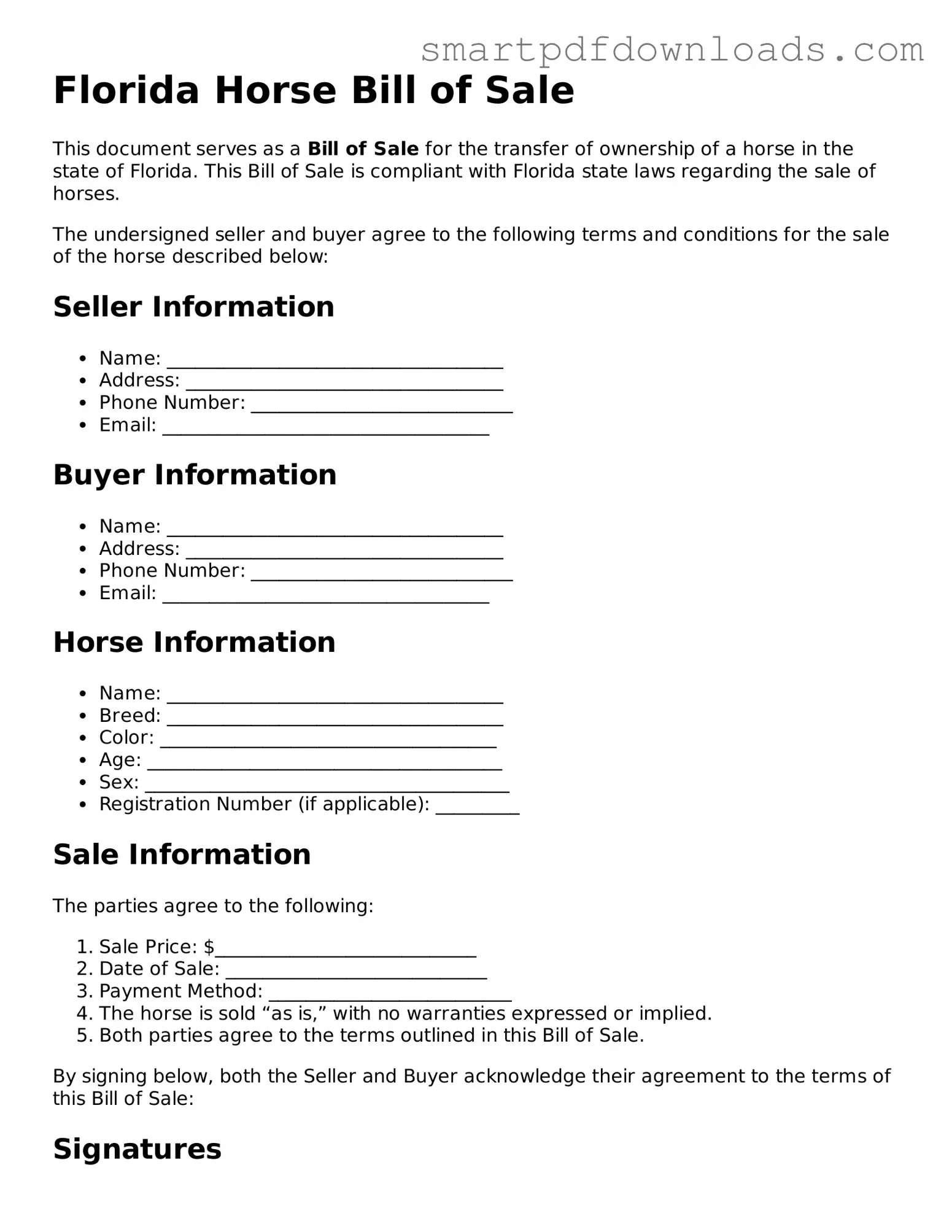Legal Horse Bill of Sale Form for the State of Florida
The Florida Horse Bill of Sale form is a legal document that records the transfer of ownership of a horse from one party to another. This form provides essential details about the horse, including its description and the sale price. Having a properly completed bill of sale can protect both the buyer and seller in the transaction.
Edit Horse Bill of Sale Online

Legal Horse Bill of Sale Form for the State of Florida
Edit Horse Bill of Sale Online

Edit Horse Bill of Sale Online
or
⇓ PDF File
Finish the form and move on
Edit Horse Bill of Sale online fast, without printing.